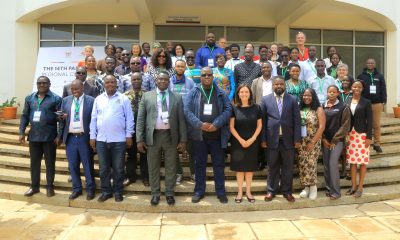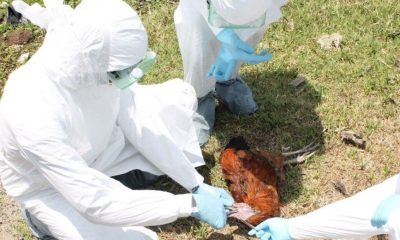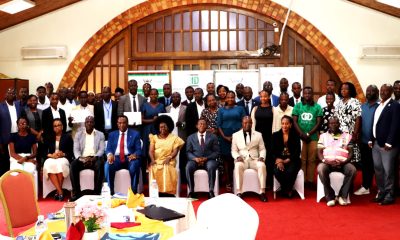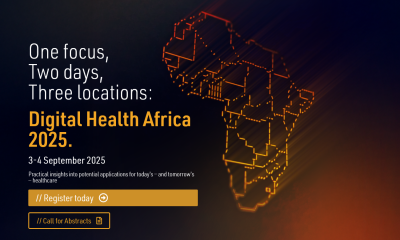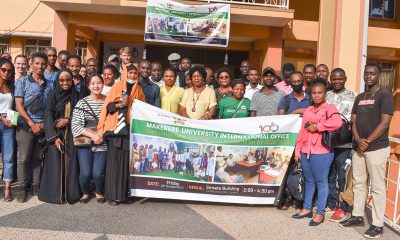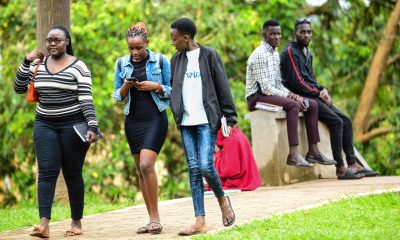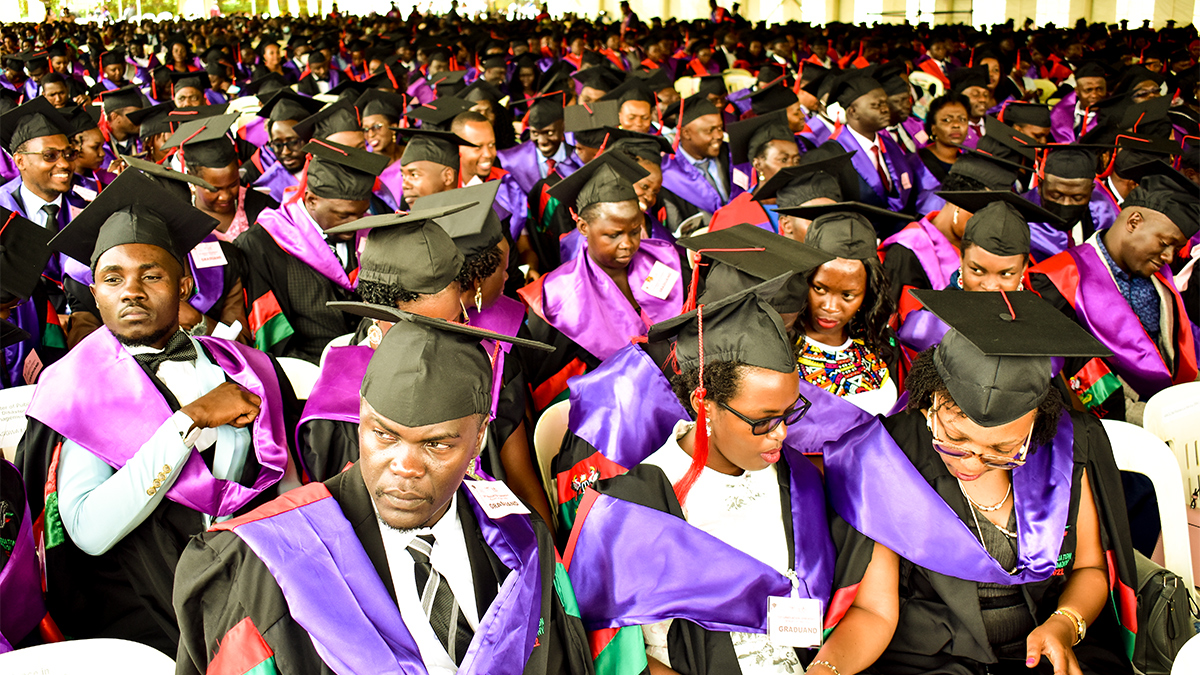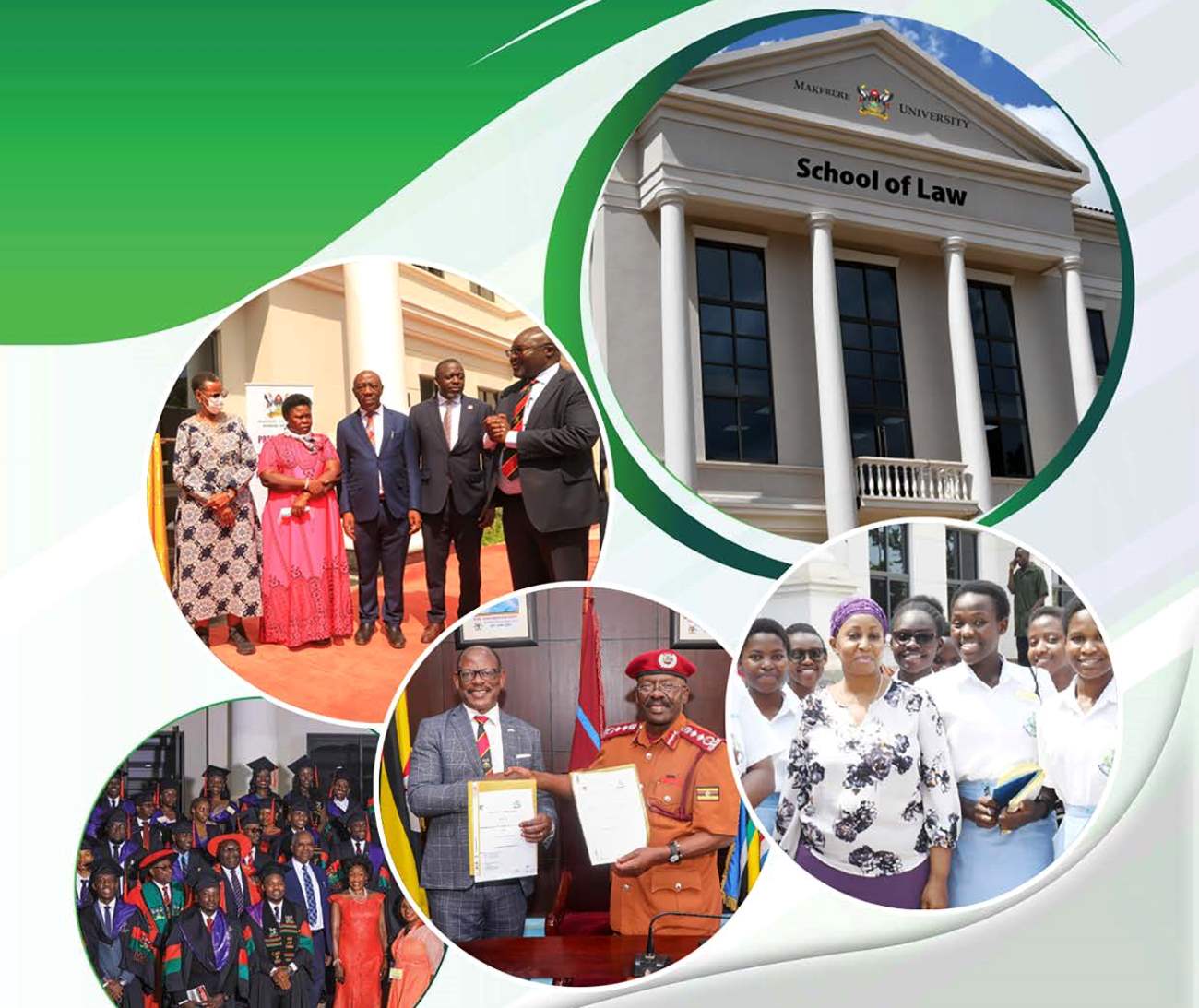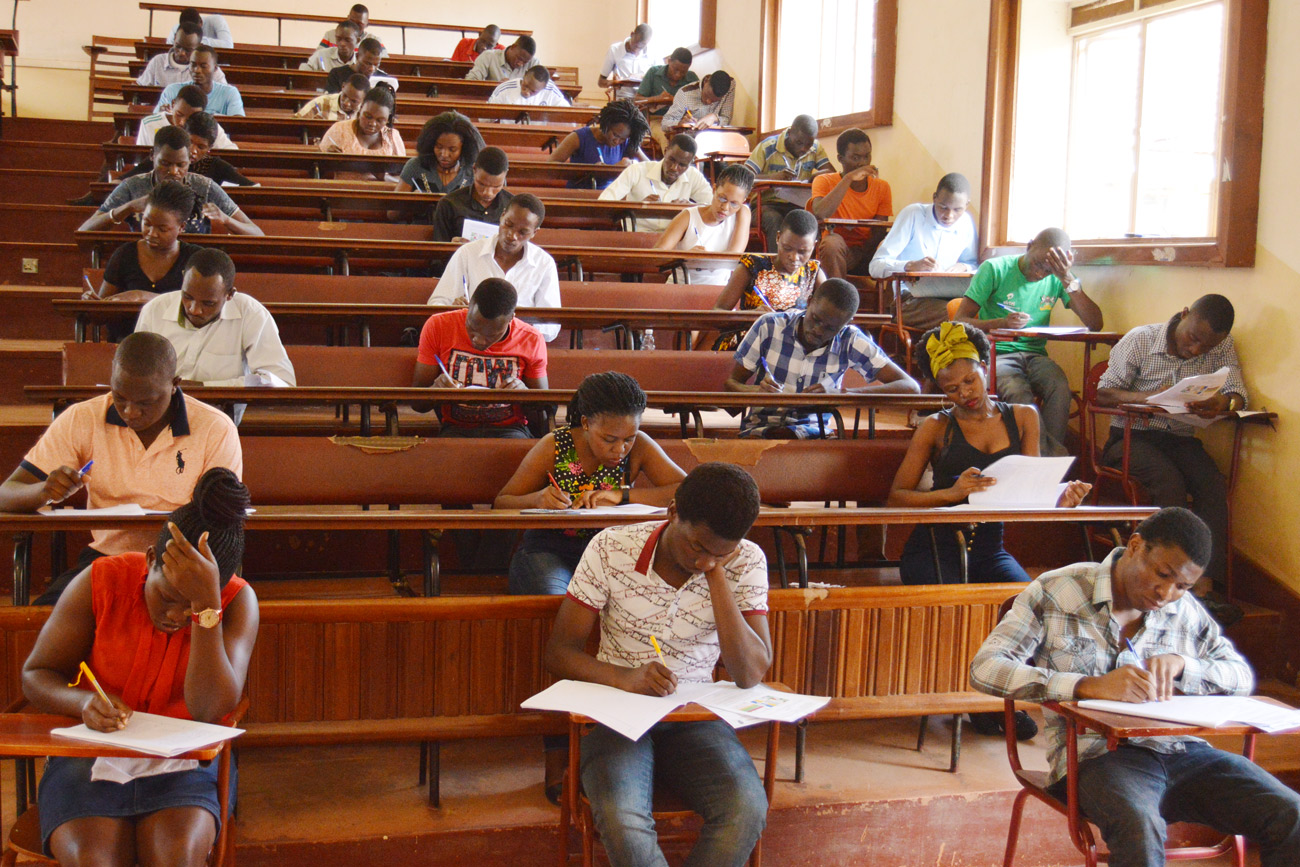The Human Rights and Peace Centre (HURIPEC), School of Law (SoL), Makerere University launched its report analysing transparency and accountability concerns over the management and oversight of Covid19 funds in Uganda; the report is a result of a one-year research initiative by the centre. Rt. Hon. Thomas Tayebwa, Deputy Speaker of Parliament of Uganda was the Chief Guest at the event held on the 26th April, 2023 at Imperial Royale Hotel, Kampala-Uganda.
In his welcome remarks, Dr. Busingye Kabumba, Director – HURIPEC welcomed participants to the launch. He said, ‘this is a special time for HURIPEC as we celebrate 30-years of existence’; he applauded the team headed by Dr. Zahara for the exciting report that is being launched which illustrates cause and effect of corruption as well as the importance of engaging citizens. Dr. Busingye noted that the report comes at a time where we are in the midst of another scandal i.e., the Iron Sheets for Karamoja which were diverted.
Dr. Zahara Nampewo, Deputy Principal-SoL who was the Principal Investigator (PI) of the research presented highlights of the report. She explained that the academic-led research initiative was intended to enhance citizen engagement in promoting transparency and accountability in public expenditure. The initiative was also aimed at stimulating Parliament to oversee the use of public resources in times of crisis. She thanked Open Society, East Africa who funded the research.
Dr. Nampewo said, ‘the report focuses on institutional oversight of both state and non-state actors in management of Covid19 funds focusing on the importance of transparency and accountability in managing public emergencies’. Some of the report findings include:
- While Uganda has elaborate statutory instruments for oversight, the national response framework for Covid19 dealt with multiple challenges like lack of transparency, ambiguities in procurement to accountability deficits.
- The rising need for transparency and accountability initiatives for Covid19 funds reflects limitations of institutional mechanisms to make government accountable for use and management of resources for health emergencies.
- Uganda government’s response to Covid19 has been overshadowed by instances of waste, mismanagement, and blatant corruption.
- Issues like delayed disbursements, unlawful procurement, political use of monetary and other reliefs, diversion of funds, and information deficits have led many districts to deal of pandemics in their own ways in spite of the many guidelines.
Dr. Nampewo added that lessons from the Covid19 pandemic should be viewed as an opportunity to learn and adopt concrete measures for dealing with health and other related emergencies. Some recommendations from the report include:
- Establish a Comprehensive Crisis Response Framework by government that helps to identify, assess, control risks and review crisis response mechanisms.
- Development of simplified set of procurement guidelines for use during crisis.
- Operationalisation of a Contingencies Fund by government to support a faster and swift response in times of crisis.
In his remarks, Rt. Hon. Thomas Tayebwa commended HURIPEC and School of Law for the work that they do in protecting human rights of the people. Hon. Tayebwa who is an alumnus of SoL expressed his happiness to be back and excited to receive the recommendations of the report. The Deputy Speaker applauded the groundbreaking work and noted that this particular report is important because it is a useful contribution when Parliament reviews the Auditor General’s forensic audit of Covid19 expenditure.
Hon. Tayebwa further said, ‘Parliament is ready to work with CSOs, researchers and academicians in understanding national issues better. This is because as observers they are in position to offer critical and objective analysis than executive or legislature who are implementors’. He noted that absence of transparency and accountability by government institutions affects Uganda’s strategy to reach middle income status.
The Deputy Speaker highlighted Section 26 of the Public Finance Management Act, 2015 as amended which defines establishment of a Contingency Fund (0.5% of National Budget) advising that it should be implemented. This would guard against emergency expenditures which are abused. He also called for value-for-money audits beside the process audits which are undertaken.
Professor Henry Alinaitwe, Deputy Vice Chancellor – Finance & Administration, Makerere University represented the Vice Chancellor; he thanked the Deputy Speaker for making the time to attend the launch. He thanked HURIPEC and SoL for the work that they do which keeps the Makerere University flag high and offer solutions to national development challenges.
A panel discussion of the report moderated by Professor Joe Oloka-Onyango with panelists Hon. Wandera-Ogalo and Hon. Dicksons Kateshumbwa was held to review the findings and recommendations of the report.
Some of the issues arising from the panel discussion and contributions from the audience included:
- Funds will never be enough; however, government commitment is handling priorities is a key consideration
- Appreciation of the work by HURIPEC in producing the report
- Question about the powers of the presidency
- Conflict of interest in the Attorney General serving as advisor to executive and legislature
- Role of social media and citizen journalism has created visibility for issues affecting the population
The meeting was closed by Professor Ronald Naluwairo, Principal-SoL. He thanked the participants for honoring the invitation by HURIPEC, SoL to attend the launch and for the lively discussion held. He also expressed the pride that SoL and Makerere have in observing the work by Hon. Tayebwa in Parliament as an alumnus of Makerere University and SoL. The Principal also applauded Dr. Zahara and team for the good work in producing the report.
Professor Naluwairo said, ‘beside teaching of the law, the mandate of SoL includes cutting edge research on national issues, this report is an example of our work’. The Principal highlighted the role that SoL plays in convening stakeholders to discuss issues affecting the population including controversial ones. He expressed the commitment of SoL in continuing to provide a civic space for the discourse.
The Report is available for download on the HURIPEC website: www.huripec.mak.ac.ug
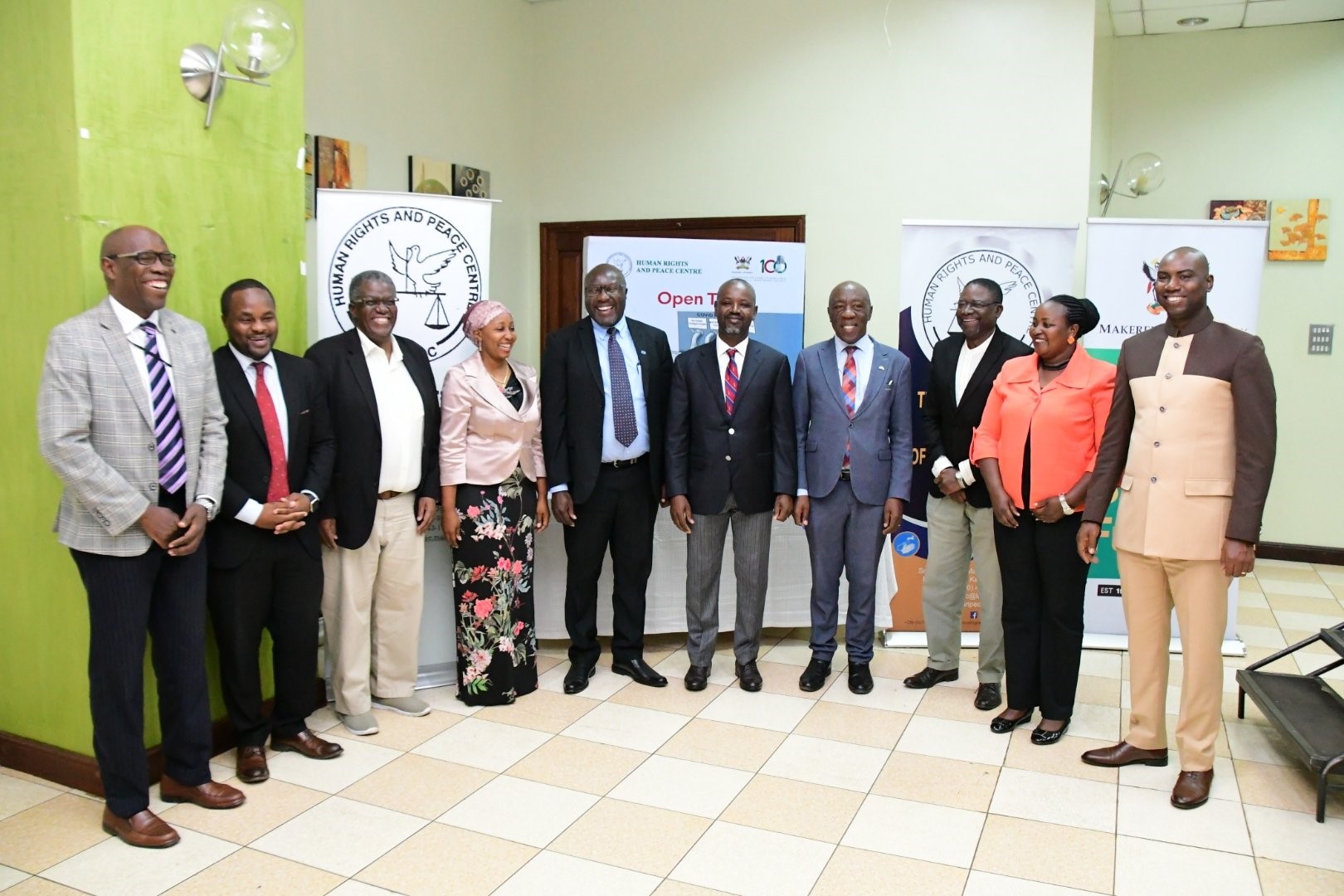

 Education1 day ago
Education1 day ago
 General1 week ago
General1 week ago
 General2 weeks ago
General2 weeks ago
 General4 days ago
General4 days ago
 General2 weeks ago
General2 weeks ago
